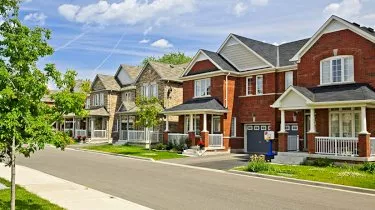Retirement
How much money do Australians actually have?
The average wealth of an Australian household has passed the $1 million mark, largely underpinned by property and superannuation holdings.
How much money do Australians actually have?
The average wealth of an Australian household has passed the $1 million mark, largely underpinned by property and superannuation holdings.

In figures released by the Australian Bureau of Statistics (ABS), there has been a 37 per cent increase in household wealth over the last decade. About 10 years ago, average household wealth hovered at $749,000.
The million-dollar mark is a 6 per cent increase from the 2015-16 report, which was $963,800 per household.
Despite strong growth for some, inequality in the distribution of wealth has not improved, according to the figures. ABS chief economist Bruce Hockman said that income and wealth inequality have remained stable over the past decade.
“While there was a marginal increase in inequality in the period leading up to the global financial crisis in 2007-08, since 2007-08 the distribution of income between households has remained relatively stable,” Mr Hockman said.

The Gini coefficient mentioned in the report shows that Australia’s inequality is at 0.328. It is measured by percentage of income per recipient. This means that if every resident earned the same amount, the Gini coefficient would be a 0 and if one person earned 100 per cent of the country’s income, the coefficient would be 1.
The Gini coefficient for wealth was slightly higher over the decade at 0.621. This means the wealthiest 20 per cent of people hold 60 per cent of the country’s income.
“Over the past decade, income growth has been slow with average weekly household incomes increasing $44 to $1,062 in 2017-18. In comparison, in the four years up to 2007-08, average weekly household income grew by $220 in real terms to $1,018,” said Mr Hockman.
“For low-income households, there has been an increase of $28 in average weekly household income over the past decade, while for high-income households, there was an increase of $57,” continued Mr Hockman.
About the author

About the author


Retirement Planning
Majority of Australians still unsure about their retirement prospects
A recent survey conducted by MFS Investment Management® has shed light on the ongoing uncertainty faced by many Australians regarding their retirement plans. Despite a slight increase in confidence ...Read more

Retirement Planning
Wage growth steadies as businesses navigate economic challenges
In a sign that the Australian labour market may be finding equilibrium, wage growth has stabilised this quarter, according to Employment Hero's latest data. This development comes as employers ...Read more

Retirement Planning
Simplified retirement advice: Key to overcoming behavioural biases, experts say
In a bid to enhance retirement outcomes for Australians, a recent whitepaper by Industry Fund Services, in collaboration with Challenger, has highlighted the importance of simplifying retirement ...Read more

Retirement Planning
Rest launches Retire Ready digital experience to empower members approaching retirement
Rest, one of Australia’s largest profit-to-member superannuation funds, has unveiled a new digital experience aimed at making retirement preparation simpler and more personalised for its members. Read more

Retirement Planning
New Framework Aims to Bridge Australia’s Financial Advice Gap
A ground-breaking framework introduced by the Actuaries Institute promises to revolutionise how Australians access financial support, potentially transforming the financial wellbeing of millionsRead more

Retirement Planning
The downsizer dividend: how Australia’s ageing shift will reshape property, finance and AI strategy
Downsizing is moving from a personal milestone to a system-level lever for Australia’s housing market. As policymakers court reforms and agents eye fresh listings, the real profit pools will accrue to ...Read more

Retirement Planning
Half of Australians financially insecure about retirement as AMP launches new initiative
In a significant move aimed at addressing the retirement concerns of Australians, AMP has unveiled the Retirement Confidence Pulse, a national barometer designed to gauge the financial confidence of ...Read more

Retirement Planning
North introduces Grow to expand Australia's financial advice footprint
In a bid to bridge the gap between the demand for financial advice and its accessibility, North, a prominent platform for superannuation and retirement in Australia, has launched an innovative ...Read more

Retirement Planning
Majority of Australians still unsure about their retirement prospects
A recent survey conducted by MFS Investment Management® has shed light on the ongoing uncertainty faced by many Australians regarding their retirement plans. Despite a slight increase in confidence ...Read more

Retirement Planning
Wage growth steadies as businesses navigate economic challenges
In a sign that the Australian labour market may be finding equilibrium, wage growth has stabilised this quarter, according to Employment Hero's latest data. This development comes as employers ...Read more

Retirement Planning
Simplified retirement advice: Key to overcoming behavioural biases, experts say
In a bid to enhance retirement outcomes for Australians, a recent whitepaper by Industry Fund Services, in collaboration with Challenger, has highlighted the importance of simplifying retirement ...Read more

Retirement Planning
Rest launches Retire Ready digital experience to empower members approaching retirement
Rest, one of Australia’s largest profit-to-member superannuation funds, has unveiled a new digital experience aimed at making retirement preparation simpler and more personalised for its members. Read more

Retirement Planning
New Framework Aims to Bridge Australia’s Financial Advice Gap
A ground-breaking framework introduced by the Actuaries Institute promises to revolutionise how Australians access financial support, potentially transforming the financial wellbeing of millionsRead more

Retirement Planning
The downsizer dividend: how Australia’s ageing shift will reshape property, finance and AI strategy
Downsizing is moving from a personal milestone to a system-level lever for Australia’s housing market. As policymakers court reforms and agents eye fresh listings, the real profit pools will accrue to ...Read more

Retirement Planning
Half of Australians financially insecure about retirement as AMP launches new initiative
In a significant move aimed at addressing the retirement concerns of Australians, AMP has unveiled the Retirement Confidence Pulse, a national barometer designed to gauge the financial confidence of ...Read more

Retirement Planning
North introduces Grow to expand Australia's financial advice footprint
In a bid to bridge the gap between the demand for financial advice and its accessibility, North, a prominent platform for superannuation and retirement in Australia, has launched an innovative ...Read more








